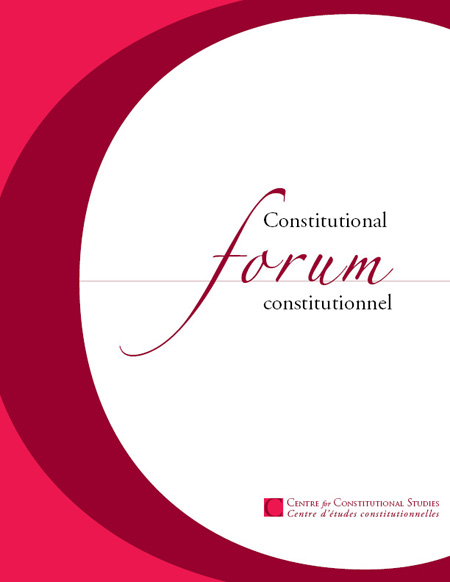A Democratic Defence of the Court Challenges Program
DOI:
https://doi.org/10.21991/C9KH3JAbstract
The introduction of the Charter of Rights and Freedoms1 has provided many historically disadvantaged groups with an opportunity to have their rights acknowledged in the policy process. Indeed the Charter places a legal ob- ligation upon governments to ensure their leg- islative efforts respect the rights of historically disadvantaged groups. Some claim, however, that the Charter has produced activist judges who create rights for “special” interest groups rather than defer to Parliament. Others sug- gest Canada’s parliamentary system is not, on its own, favourable to all Canadians, and many groups and individuals are forced to the courts to make their interests and concerns known to government policy makers and legislators. The Court Challenges Program (CCP) was at the centre of this debate. This modest, federally funded initiative contributed to the protection and promotion of Canada’s official language mi- nority groups (OLMGs) for almost thirty years, and provided assistance to groups seeking to as- sert their section 15 Charter rights for almost twenty. The Court Challenges Program served as a last resort for many of Canada’s most dis- advantaged groups, but the Harper government recently took the position that the CCP was one of several “wasteful programs” not “providing good value for money.”2 Funding for the pro- gram was eliminated in 2006, silencing many of Canada’s most vulnerable groups.
Downloads
Published
Issue
Section
License
Authors who publish with Constitutional Forum constitutionnel grant the journal the right of first publication, and agree to license the work under an Attribution-NonCommercial-NoDerivs (CC BY-NC-ND) that allows others to share the work for non-commercial purposes, with an acknowledgement of the work's authorship and initial publication in this journal, as long as no changes are made to the original work. Please use this format to attribute this work to Constitutional Forum constitutionnel:
"First published as: Title of Article, Contributor, Constitutional Forum constitutionnel Volume/Issue, Copyright © [year], Publisher"





